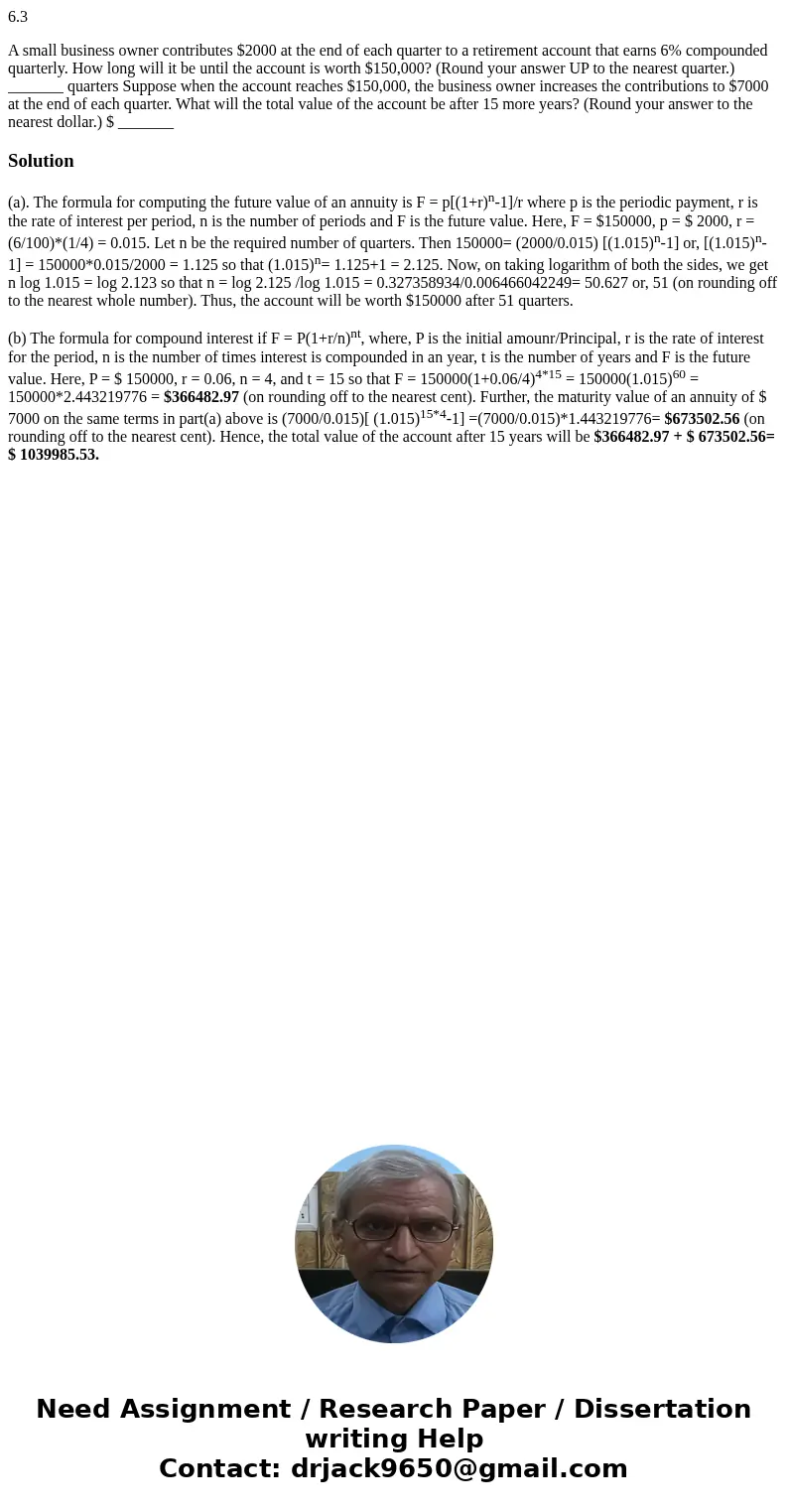63 A small business owner contributes 2000 at the end of eac
6.3
A small business owner contributes $2000 at the end of each quarter to a retirement account that earns 6% compounded quarterly. How long will it be until the account is worth $150,000? (Round your answer UP to the nearest quarter.) _______ quarters Suppose when the account reaches $150,000, the business owner increases the contributions to $7000 at the end of each quarter. What will the total value of the account be after 15 more years? (Round your answer to the nearest dollar.) $ _______Solution
(a). The formula for computing the future value of an annuity is F = p[(1+r)n-1]/r where p is the periodic payment, r is the rate of interest per period, n is the number of periods and F is the future value. Here, F = $150000, p = $ 2000, r = (6/100)*(1/4) = 0.015. Let n be the required number of quarters. Then 150000= (2000/0.015) [(1.015)n-1] or, [(1.015)n-1] = 150000*0.015/2000 = 1.125 so that (1.015)n= 1.125+1 = 2.125. Now, on taking logarithm of both the sides, we get n log 1.015 = log 2.123 so that n = log 2.125 /log 1.015 = 0.327358934/0.006466042249= 50.627 or, 51 (on rounding off to the nearest whole number). Thus, the account will be worth $150000 after 51 quarters.
(b) The formula for compound interest if F = P(1+r/n)nt, where, P is the initial amounr/Principal, r is the rate of interest for the period, n is the number of times interest is compounded in an year, t is the number of years and F is the future value. Here, P = $ 150000, r = 0.06, n = 4, and t = 15 so that F = 150000(1+0.06/4)4*15 = 150000(1.015)60 = 150000*2.443219776 = $366482.97 (on rounding off to the nearest cent). Further, the maturity value of an annuity of $ 7000 on the same terms in part(a) above is (7000/0.015)[ (1.015)15*4-1] =(7000/0.015)*1.443219776= $673502.56 (on rounding off to the nearest cent). Hence, the total value of the account after 15 years will be $366482.97 + $ 673502.56= $ 1039985.53.

 Homework Sourse
Homework Sourse